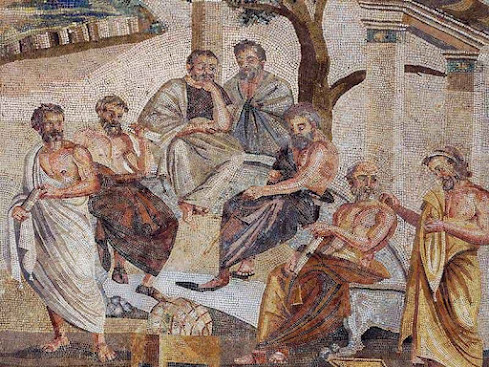The Myth of Gyges' Invisibility Ring and the Nature of Justice - Plato's "Republic"
In the beginning of Plato's Republic he engages with a sophist named Thrasymachus who claims that there is no such thing as justice. Rather, justice is simply that the powerful get to do what the want and the weak suffer from it.
"The best is to do injustice without paying the penalty; the worst is to suffer it without being able to take revenge. Justice is in the middle between these two extremes. People love it, not because it is a good thing, but because they are too weak to do injustice with impunity. Someone who has the power to do it, however—someone who is a real man—would not make an agreement with anyone, neither to do injustice nor to suffer it. For him, that would be insanity. That is the nature of justice, according to the argument, Socrates, and those are its natural origins. We can see most clearly that those who practice it do so unwillingly, because they lack the power to do injustice, if we imagine the following thought-experiment."
Later in Book II, another interlocutor Glaucon recounts these arguments and tells an interesting myth about a supposed Greek ancestor named "Gyges of Lydia" in order to further steel-man the argument of Thrasymachus before Socrates responds to it. The story goes something like this...
The Myth of Gyges and His Invisibility Ring
Gyges was a shepherd for the king of Lydia. One day when he was out in the fields there was a storm and an earthquake which cracked the ground open. He went down in the crevasse and there he encountered many incredible things. One of those things was a large bronze horse with windows in its sides. As Gyges peers in the windows he sees a dead and naked man wearing simply a golden ring. He takes the ring off the man and wears it himself. Later, while he is attending a meeting of shepherds who report to the king, he is playing with the ring and twists the setting on the ring, which suddenly makes him invisible. He is shocked and tests it out to make sure that was the cause. He then asks to be made a messenger to the king regarding the flocks. When he gets access to the king he decides to use his invisibility ring to overthrow him. He takes his wife, and had the king killed, taking over him kingdom. Gyges, then, went from a poor shepherd to a tyrant because he had the power to do so.
The Claim of the Story
The point of the story is to claim that anyone would be unjust if simply he had the power to do so and get away with it. People only pursue true justice when they don't have to power and want to band together to prevent the powerful from taking advantage of them. The story continues as Glaucon asks them to consider if there were two rings made, one given to a very moral and just man, the other to a corrupt one. Would they use the ring differently? The claim is that they wouldn't. They would both end up with the same fate, to do injustice. They would steal whatever they wanted from stores, take anyone they wanted for sex, and murder anyone they wanted killed.
"And in so behaving, he would do no differently than the unjust person, but both would pursue the same course. This, some would say, is strong evidence that no one is just willingly, but only when compelled. No one believes justice to be a good thing when it is kept private, since whenever either person thinks he can do injustice with impunity, he does it. Indeed, all men believe that injustice is far more profitable to themselves than is justice."
Socrates Notion of Justice
This is the gist of the argument of Thrasymachus. But back in Book I, Socrates rejects this notion of justice, and holds that the truly just man will end up being happier in the long run, as well as rewarded instead of punished in the afterlife. This is because things function according to their nature. To function properly is to function according to the corresponding virtue, while functioning badly a corresponding vice. Therefore, the function of the soul of man is to participate in justice as its virtue. It can only be then that acting in virtue will man find true happiness and fulfill his nature, not in vice and injustice. Likewise for a city, to function in a just way is to function properly according to its nature and virtue. This then is the impetus for the ensuing discussion beginning in Book II about the nature of a just city.





Comments
Post a Comment